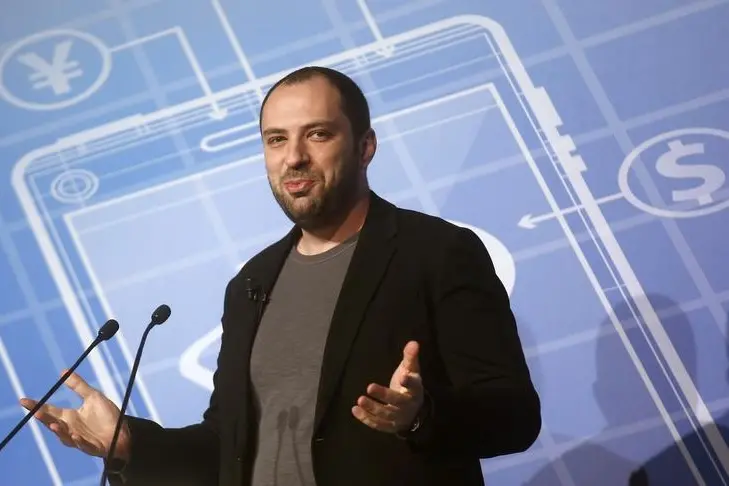PHOTO
MUNICH, Jan 18 (Reuters) - WhatsApp, the world's most popular messaging service, is dropping its token $1 a year subscription fee for consumers as it experiments with making businesses pay to send notifications to consumers, Chief Executive Jan Koum said on Monday.
The seven-year-old company, which was acquired by social media giant Facebook for $19.2 billion in 2014 and now counts nearly 1 billion users, is testing making restaurants, airlines and credit card companies pay to contact consumers, Koum said.
"Today, we are announcing that WhatsApp is going to be free to users. We aren't going to charge a dollar a year anymore," Youm told an audience of entrepreneurs and investors at the annual Digital Life Design conference in Munich.
Instead, WhatsApp said it will begin experimenting this year to simplify how businesses interact with consumers.
"When we think about our philosophy of building something utilitarian, we kinda want to experiment with doing the same thing with businesses," he said but gave no further details.
(Reporting By Eric Auchard; Editing by Maria Sheahan) ((eric.auchard@thomsonreuters.com; +49 69 7565 1235; Reuters Messaging: eric.auchard.thomsonreuters.com@reuters.net))
The seven-year-old company, which was acquired by social media giant Facebook for $19.2 billion in 2014 and now counts nearly 1 billion users, is testing making restaurants, airlines and credit card companies pay to contact consumers, Koum said.
"Today, we are announcing that WhatsApp is going to be free to users. We aren't going to charge a dollar a year anymore," Youm told an audience of entrepreneurs and investors at the annual Digital Life Design conference in Munich.
Instead, WhatsApp said it will begin experimenting this year to simplify how businesses interact with consumers.
"When we think about our philosophy of building something utilitarian, we kinda want to experiment with doing the same thing with businesses," he said but gave no further details.
(Reporting By Eric Auchard; Editing by Maria Sheahan) ((eric.auchard@thomsonreuters.com; +49 69 7565 1235; Reuters Messaging: eric.auchard.thomsonreuters.com@reuters.net))





















